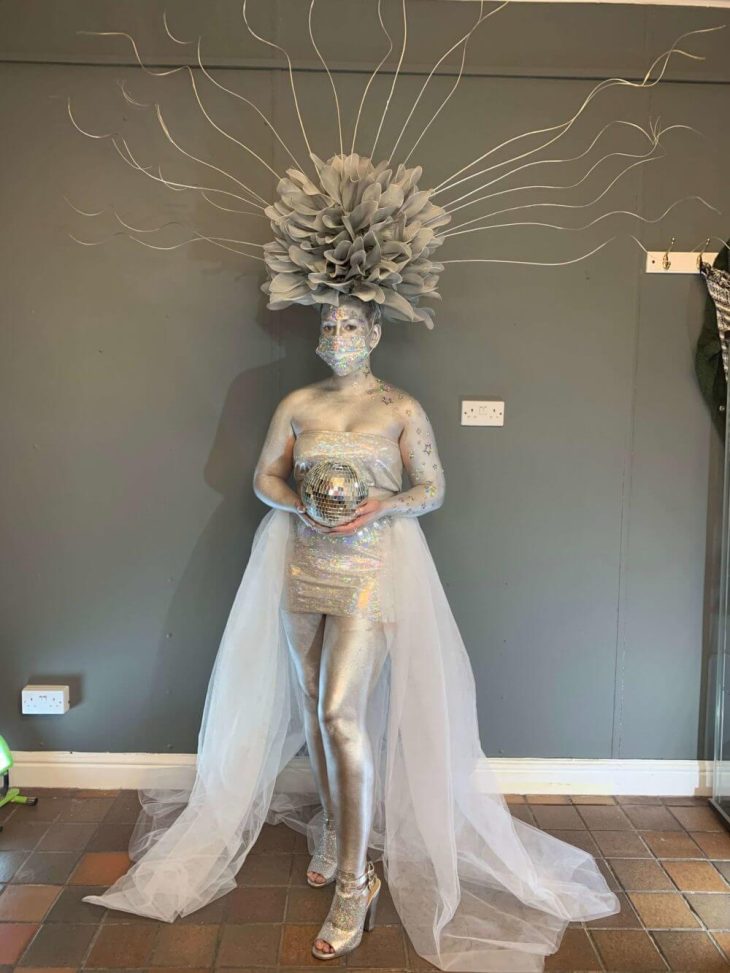
Word of the Day: Avant-Garde
Today’s word of the day, courtesy of Words Coach (https://www.wordscoach.com/dictionary), is avant-garde. Pronounced / əˌvɑntˈgɑrd /, / əˌvænt ˈgɑrd /, /ˌæv ɑnt ˈgɑrd /, /ˌɑ vɑnt ˈgɑrd /, or / a vɑ̃ˈgard / (I would avoid the pronunciation choices with æ), avant-garde, as a noun, means “the advance group in any field, especially in the visual, literary, or musical arts, whose works are characterized chiefly by unorthodox and experimental methods” (https://www.dictionary.com/browse/avant-garde). As an adjective, it can mean “of or relating to the experimental treatment of artistic, musical, or literary material,” “belonging to the avant-garde,” or “unorthodox or daring” (ibid.).
Merriam-Webster defines the noun as “an intelligentsia that develops new or experimental concepts especially in the arts” and the adjective as “of or relating to an avant-garde” (https://www.merriam-webster.com/dictionary/avant-garde).
The word is actually “French, literally ‘advance guard’ (see avant + guard (n.)). Used in English 15c.-18c. in a literal, military sense; borrowed again 1910 as an artistic term for ‘pioneers or innovators of a particular period.’ Also used around the same time in a political sense in communist and anarchist publications. As an adjective, by 1925” (https://www.etymonline.com/search?q=avant-garde). The point here is that the word is actually French and, like so many words in contemporary English, was simply borrowed into the language. The word does not appear in the 1755 Dictionary of Samuel Johnson probably because Johnson did not consider it an English word and therefore would not put it into his English Dictionary.
Part of the reason English has become the dominant language of the Earth, the language of science, of statesmanship, of communication, of transportation, even of association football, is because it’s a creole, a combination of at least two languages, French and Anglo-Saxon. From 1066 until actually quite recently, it was expected that the elites of English life spoke French as well as English. Edward III was considered the first truly English king (since Harold Godwinson). Of course, Latin was also an important element in this creole. For instance, in 1215, when King John agreed to the Magna Carta, it was written in Latin. This tendency to blend languages together continued as time passed.
In 1635, Cardinal Richelieu, working for Louis XIII, established the Académie Française, “the principal French council for matters pertaining to the French language” (https://en.wikipedia.org/wiki/Acad%C3%A9mie_Fran%C3%A7aise). “Abolished in 1793 during the French Revolution, it was restored as a division of the Institut de France in 1803 by Napoleon Bonaparte. It is the oldest of the five académies of the institute. The body has the duty of acting as an official authority on the language; it is tasked with publishing an official dictionary of the language” (ibid.). This academy seems to have, as part of its mission, to keep French from being overly infected by words from other languages. The English language has never had such an academy, although various people advocated for one, including John Dryden, Daniel Defoe, and Jonathan Swift. But it never happened, and that is probably a good thing.
Just imagine what English would be like today if such an academy had been created and if such an academy had limited the importation of foreign words. Here are some common, everyday words that we have straight-out borrowed from other languages:
Taco
karate
moose
perestroika
linguine
pueblo
sushi
pyjamas
bratwurst
I’ll finish this little post with a story. When I was in grad school, I had a professor for a Shakespeare class named Dr. Gordon. He had a been a Roman Catholic priest, but he left the clergy and married a woman who had been a nun. As far as I know, they did not have any children, so they spent what money they made, or part of it, travelling. Dr. Gordon especially liked Deutschland, and he spoke Deutsch, as did many of his colleagues; it was almost a requirement back then for people who studied literature from the Renaissance and before.
So Dr. Gordon and Mrs. Gordon were in a small Deutsch village having lunch in a café. This was a long time ago, and back then Deutsch people did not necessarily learn English growing up as they do today. At another table sat a group of American tourists, and a woman at the table was having a hard time understanding the menu, and the server was having a hard time understanding her English. At yet another table, someone sneezed, and someone else at that table said, “Gesundheit.”
The American woman said, “Finally, someone who speaks English.”
Not exactly a member of the avant-garde.
Then again, if being avant-garde means looking like today’s image, which is “Concept Hair Apprentice of the Year: Meet the Avant-garde winner – Concept Hair Magazine” (https://ar.inspiredpencil.com/pictures-2023/avant-garde-hair), then maybe I’d rather be more like the tourist.